Quotes & Sayings About Cognitive Learning
Enjoy reading and share 29 famous quotes about Cognitive Learning with everyone.
Top Cognitive Learning Quotes
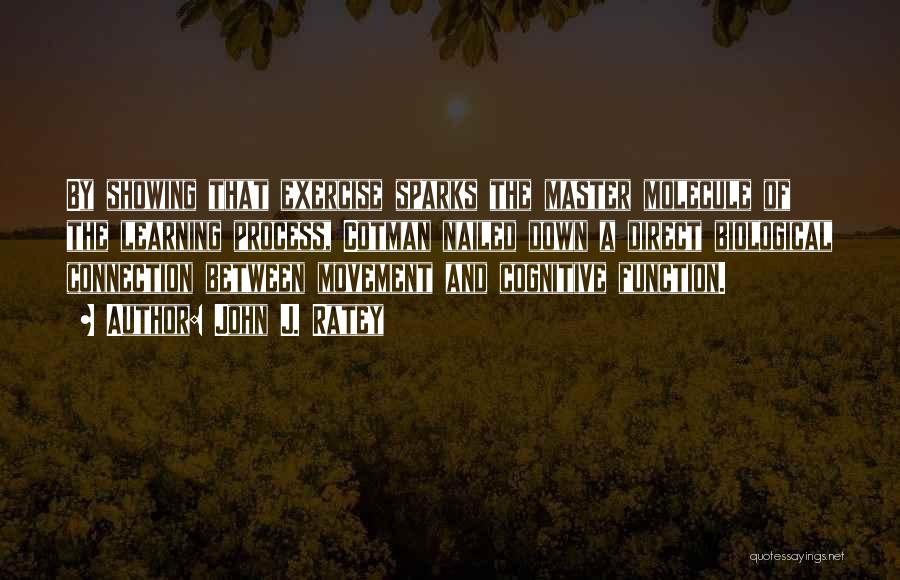
By showing that exercise sparks the master molecule of the learning process, Cotman nailed down a direct biological connection between movement and cognitive function. — John J. Ratey

some linguists have also concluded that, while the innatist perspective provides a plausible explanation for first language acquisition, something else is required for second language acquisition, since it so often falls short of full success. From the cognitive psychology perspective, however, first and second language acquisition are seen as drawing on the same processes of perception, memory, categorization, and generalization. The difference lies in the circumstances of learning as well as in what the learners already know about language and how that prior knowledge shapes their perception of the new language. — Patsy M. Lightbown
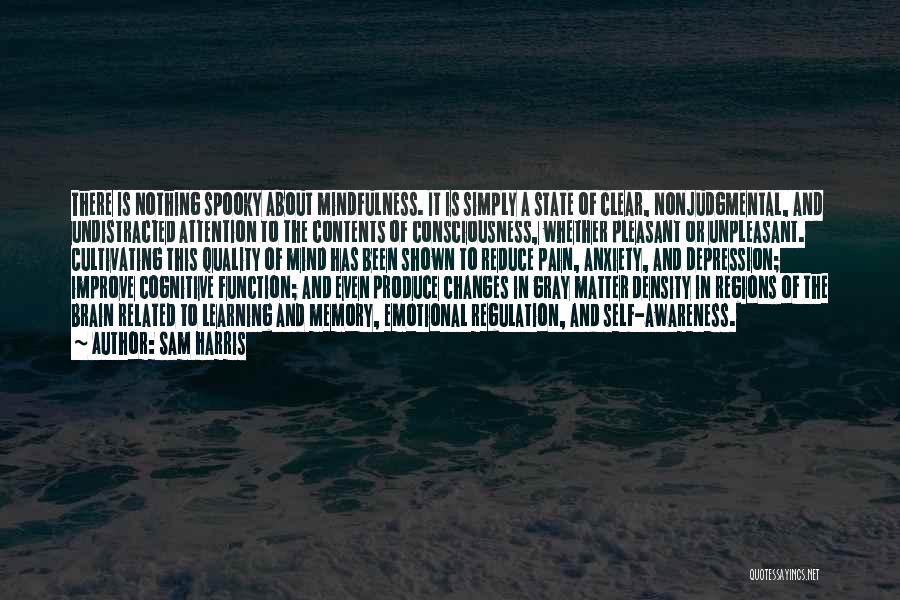
There is nothing spooky about mindfulness. It is simply a state of clear, nonjudgmental, and undistracted attention to the contents of consciousness, whether pleasant or unpleasant. Cultivating this quality of mind has been shown to reduce pain, anxiety, and depression; improve cognitive function; and even produce changes in gray matter density in regions of the brain related to learning and memory, emotional regulation, and self-awareness. — Sam Harris
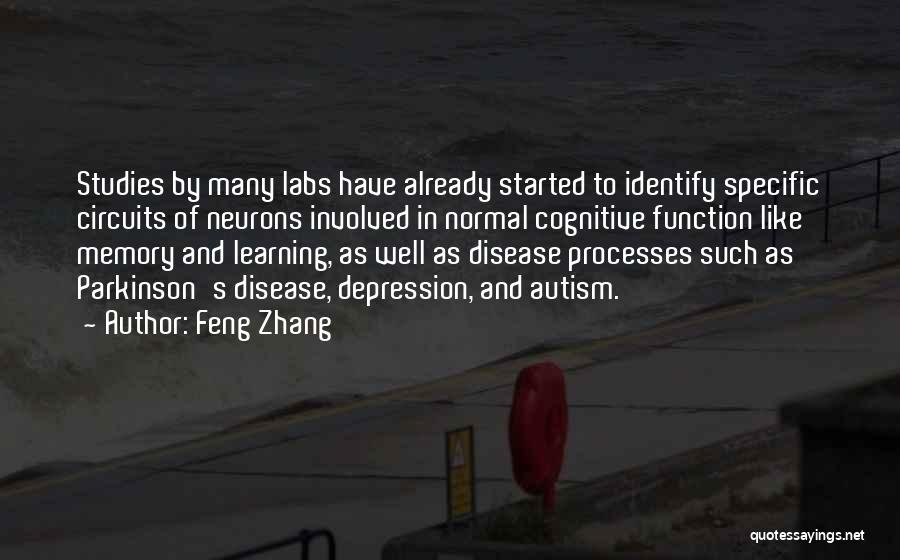
Studies by many labs have already started to identify specific circuits of neurons involved in normal cognitive function like memory and learning, as well as disease processes such as Parkinson's disease, depression, and autism. — Feng Zhang

The quality of mind cultivated in vipassana is almost always referred to as "mindfulness," and the literature on its psychological benefits is now substantial. There is nothing spooky about mindfulness. It is simply a state of clear, nonjudgmental, and undistracted attention to the contents of consciousness, whether pleasant or unpleasant. Cultivating this quality of mind has been shown to reduce pain, anxiety, and depression; improve cognitive function; and even produce changes in gray matter density in regions of the brain related to learning and memory, emotional regulation, and self-awareness.12 — Sam Harris
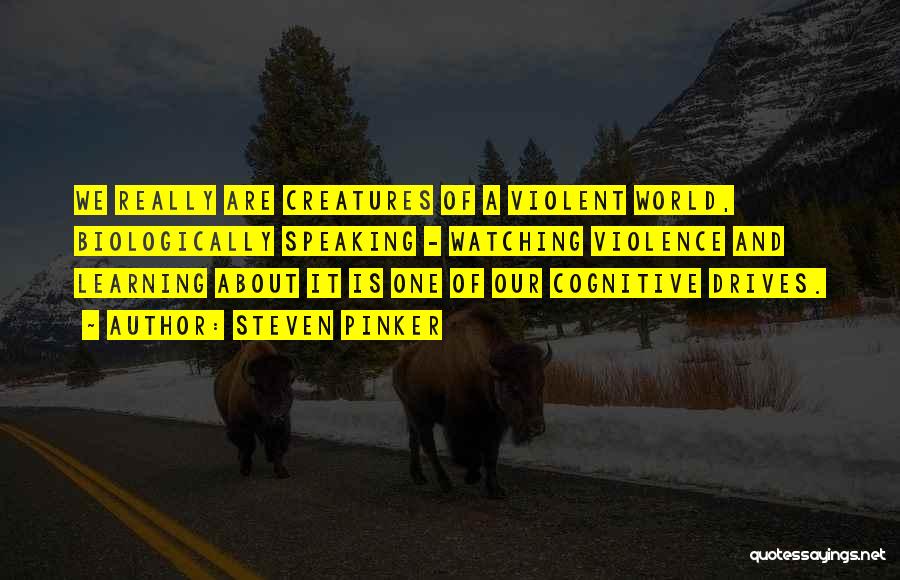
We really are creatures of a violent world, biologically speaking - watching violence and learning about it is one of our cognitive drives. — Steven Pinker
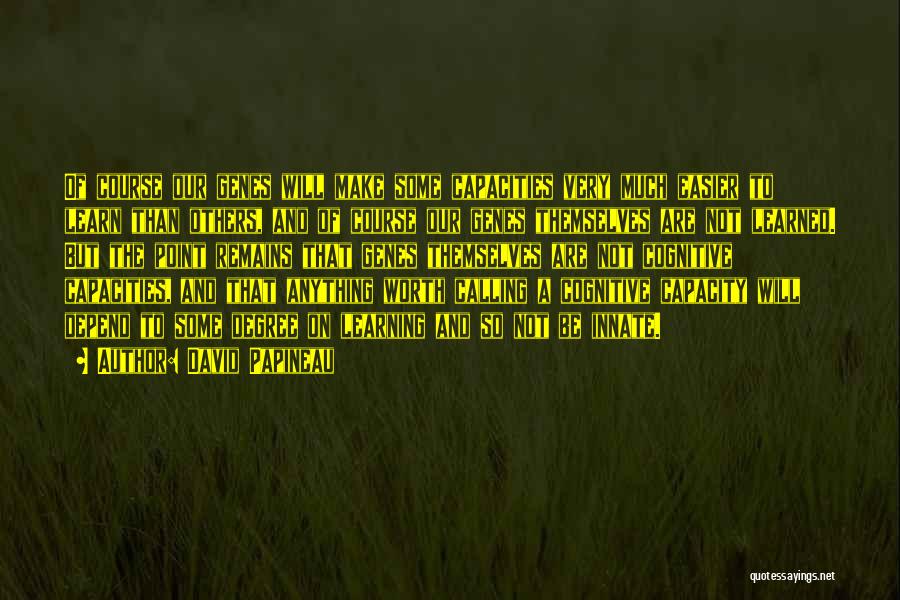
Of course our genes will make some capacities very much easier to learn than others, and of course our genes themselves are not learned. But the point remains that genes themselves are not cognitive capacities, and that anything worth calling a cognitive capacity will depend to some degree on learning and so not be innate. — David Papineau
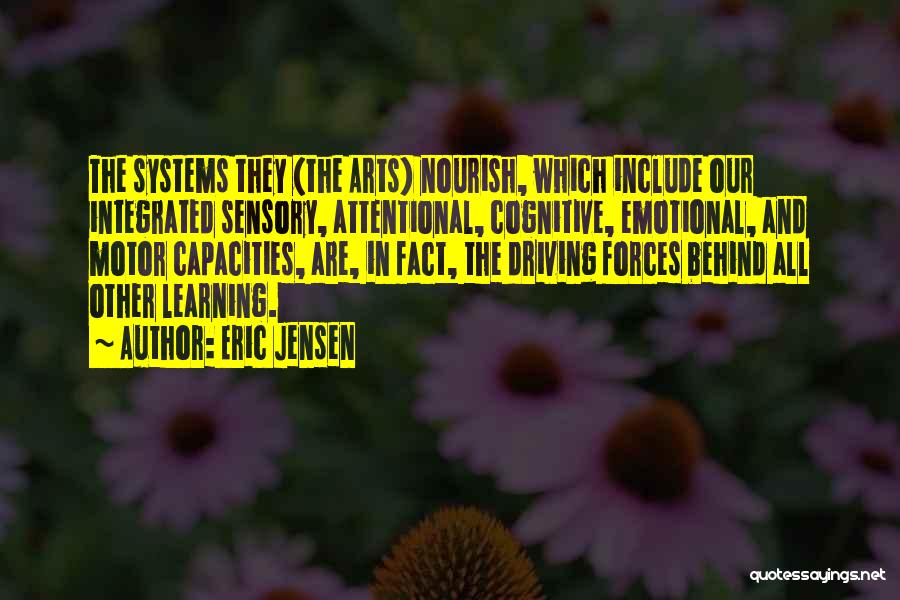
The systems they (the Arts) nourish, which include our integrated sensory, attentional, cognitive, emotional, and motor capacities, are, in fact, the driving forces behind all other learning. — Eric Jensen
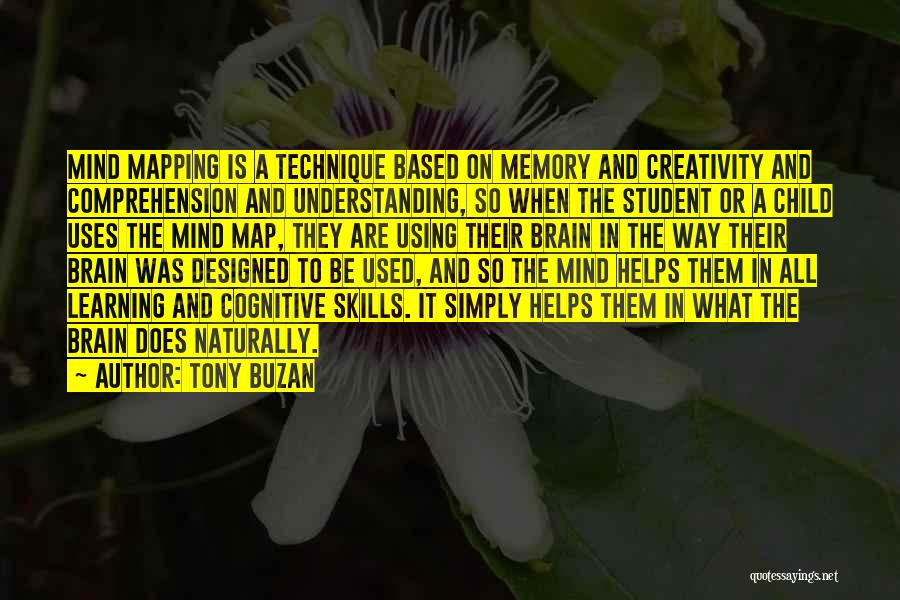
Mind mapping is a technique based on memory and creativity and comprehension and understanding, so when the student or a child uses the mind map, they are using their brain in the way their brain was designed to be used, and so the mind helps them in all learning and cognitive skills. It simply helps them in what the brain does naturally. — Tony Buzan

Many of the benefits of CBT (cognitive behavioral therapy) can be obtained without going into therapy. There are a number of self-help books, CDs and computer programs that have been used to treat depression and some of these have been tested in clinical trials with positive results. I can particularly recommend these two books. One is 'Control Your Depression', the lead author of which is Peter Lewinsohn, a Professor of Psychology at the University of Oregon ... The other book that I can recommend with confidence is 'Feeling Good' by the psychiatrist David Burns. 'Control Your Depression' emphasizes behavioral techniques like increasing pleasant activities, improving social skills and learning to relax. 'Feeling Good' puts greater emphasis on changing the way people think about themselves. But both books include both cognitive and behavioral techniques. — Irving Kirsch
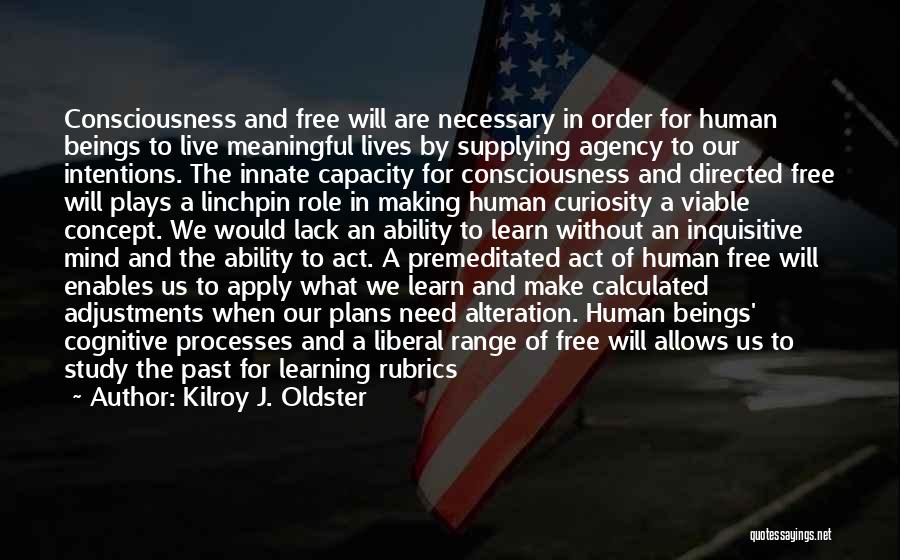
Consciousness and free will are necessary in order for human beings to live meaningful lives by supplying agency to our intentions. The innate capacity for consciousness and directed free will plays a linchpin role in making human curiosity a viable concept. We would lack an ability to learn without an inquisitive mind and the ability to act. A premeditated act of human free will enables us to apply what we learn and make calculated adjustments when our plans need alteration. Human beings' cognitive processes and a liberal range of free will allows us to study the past for learning rubrics to employ in the present and cogitate upon a future course of action. — Kilroy J. Oldster
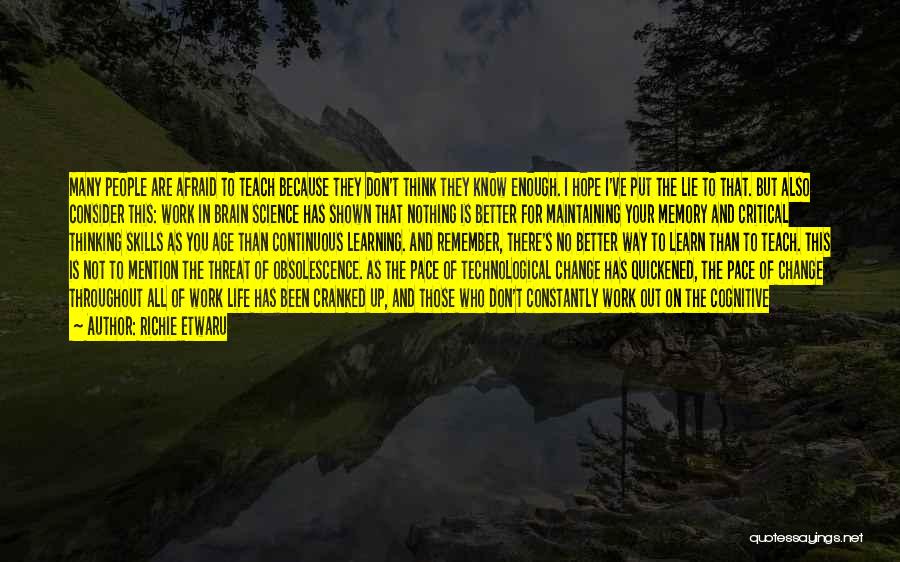
Many people are afraid to teach because they don't think they know enough. I hope I've put the lie to that. But also consider this: work in brain science has shown that nothing is better for maintaining your memory and critical thinking skills as you age than continuous learning. And remember, there's no better way to learn than to teach. This is not to mention the threat of obsolescence. As the pace of technological change has quickened, the pace of change throughout all of work life has been cranked up, and those who don't constantly work out on the cognitive treadmill find themselves lapped by the new young things right out of college. Finally, — Richie Etwaru

In my practice I use neurofeedback primarily to help with the hyperarousal, confusion, and concentration problems of people who suffer from developmental trauma. However, it has also shown good results for numerous issues and conditions that go beyond the scope of this book, including relieving tension headaches, improving cognitive functioning following a traumatic brain injury, reducing anxiety and panic attacks, learning to deepen meditation states, treating autism, improving seizure control, self-regulation in mood disorders, and more. — Bessel A. Van Der Kolk
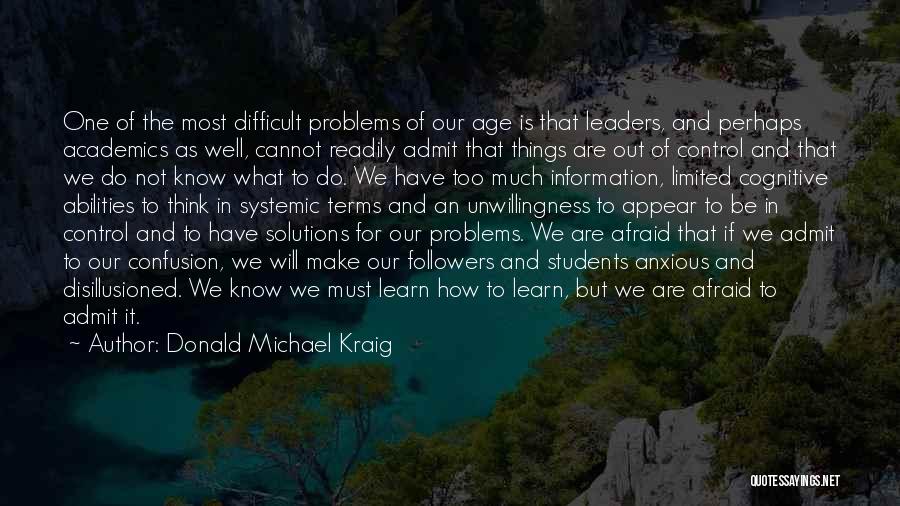
One of the most difficult problems of our age is that leaders, and perhaps academics as well, cannot readily admit that things are out of control and that we do not know what to do. We have too much information, limited cognitive abilities to think in systemic terms and an unwillingness to appear to be in control and to have solutions for our problems. We are afraid that if we admit to our confusion, we will make our followers and students anxious and disillusioned. We know we must learn how to learn, but we are afraid to admit it. — Donald Michael Kraig

we are speaking about cognitive meanings, which cannot be transferred into students as blood is pumped into veins. Learning the meaning of a piece of knowledge requires dialog, exchange, sharing, and sometimes compromise. — Joseph D. Novak
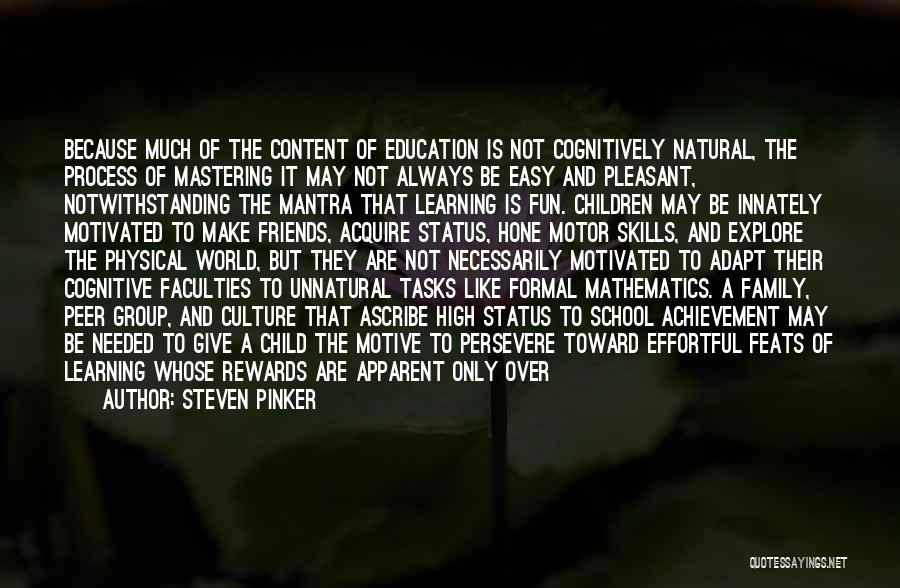
Because much of the content of education is not cognitively natural, the process of mastering it may not always be easy and pleasant, notwithstanding the mantra that learning is fun. Children may be innately motivated to make friends, acquire status, hone motor skills, and explore the physical world, but they are not necessarily motivated to adapt their cognitive faculties to unnatural tasks like formal mathematics. A family, peer group, and culture that ascribe high status to school achievement may be needed to give a child the motive to persevere toward effortful feats of learning whose rewards are apparent only over the long term. — Steven Pinker

Embrace Cursive Schools are downplaying - and even eliminating - the need to learn to write cursive, despite its necessity to engage highly complex cognitive processes and achieve mastery of a precise motor coordination. (It takes children years to master handwriting and some stroke victims relearn language by tracing letters with their fingers.) Writing in cursive also increases a sense of harmony and balance, and writing on paper provides creative options: to manipulate the medium in multidimensional, innovative, or expressive ways (such as cutting, folding, pasting, ripping, or coloring the paper). Also, when you write in longhand on paper and then edit, there'll be a visual and tactile record of your creative process for you and others to study. Learning to write (and writing) in cursive, on paper, fosters creativity and should not be surrendered. — Susan Reynolds

Most learning is not the result of instruction. It is rather the result of unhampered participation in a meaningful setting. Most people learn best by being "with it," yet school makes them identify their personal, cognitive growth with elaborate planning and manipulation. — Ivan Illich

How much ever we may underpin cognitive learning theories in technical communication and document design, the users invariably learn more when they are unknowingly
involved in the learning process: users learn more when they aren't learning. Conclusively, we must focus on experimentation and empowerment, and not on learning alone. — Suyog Ketkar
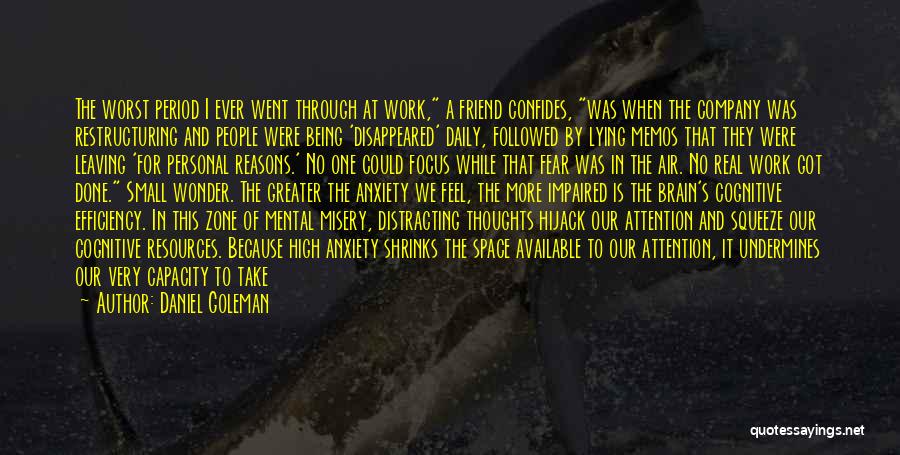
The worst period I ever went through at work," a friend confides, "was when the company was restructuring and people were being 'disappeared' daily, followed by lying memos that they were leaving 'for personal reasons.' No one could focus while that fear was in the air. No real work got done." Small wonder. The greater the anxiety we feel, the more impaired is the brain's cognitive efficiency. In this zone of mental misery, distracting thoughts hijack our attention and squeeze our cognitive resources. Because high anxiety shrinks the space available to our attention, it undermines our very capacity to take in new information, let alone generate fresh ideas. Near-panic is the enemy of learning and creativity. — Daniel Goleman

Coming to understand a painting or a symphony in an unfamiliar style, to recognize the work of an artist or school, to see or hear in new ways, is as cognitive an achievement as learning to read or write or add. — Nelson Goodman
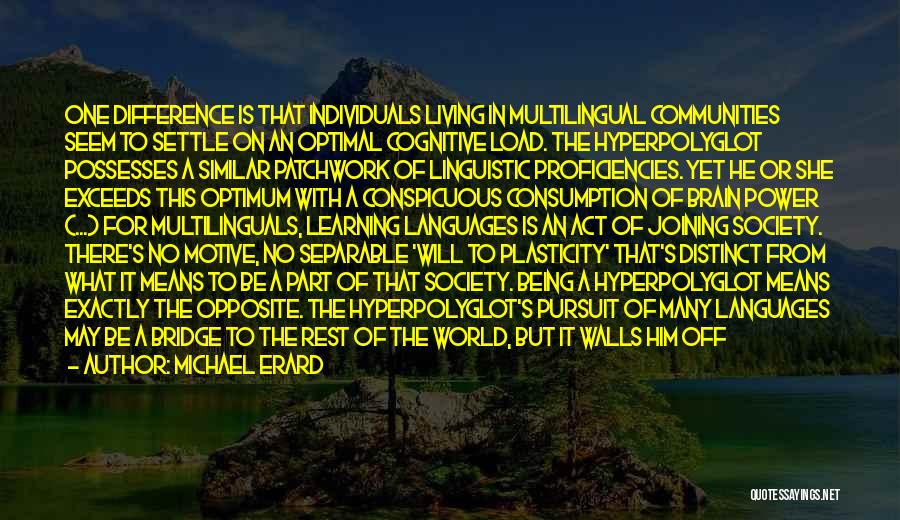
One difference is that individuals living in multilingual communities seem to settle on an optimal cognitive load. The hyperpolyglot possesses a similar patchwork of linguistic proficiencies. Yet he or she exceeds this optimum with a conspicuous consumption of brain power (...) For multilinguals, learning languages is an act of joining society. There's no motive, no separable 'will to plasticity' that's distinct from what it means to be a part of that society. Being a hyperpolyglot means exactly the opposite. The hyperpolyglot's pursuit of many languages may be a bridge to the rest of the world, but it walls him off from his immediate language community. — Michael Erard

Learning comes from education, while knowing comes from revelation. Learning is cognitive, while knowing is spiritual. — Israelmore Ayivor
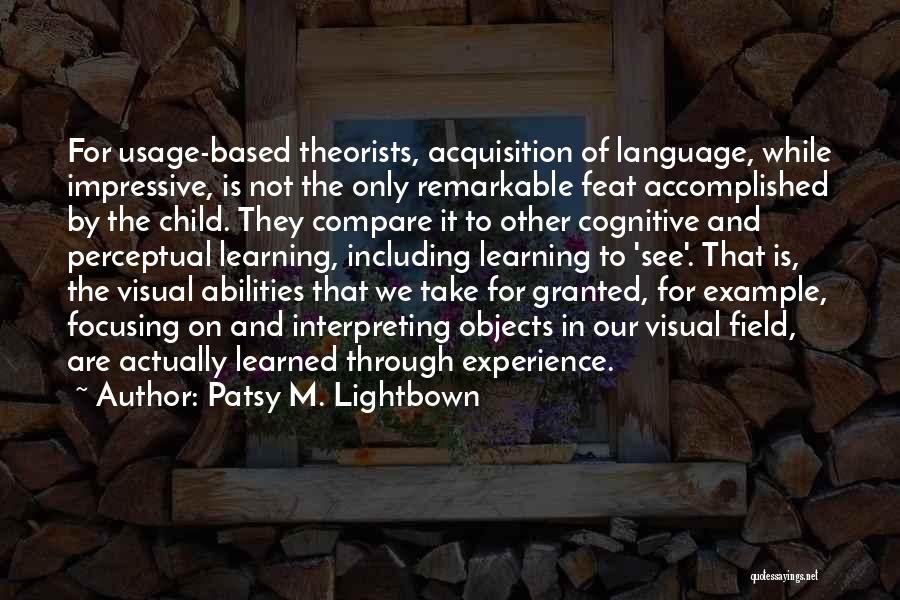
For usage-based theorists, acquisition of language, while impressive, is not the only remarkable feat accomplished by the child. They compare it to other cognitive and perceptual learning, including learning to 'see'. That is, the visual abilities that we take for granted, for example, focusing on and interpreting objects in our visual field, are actually learned through experience. — Patsy M. Lightbown
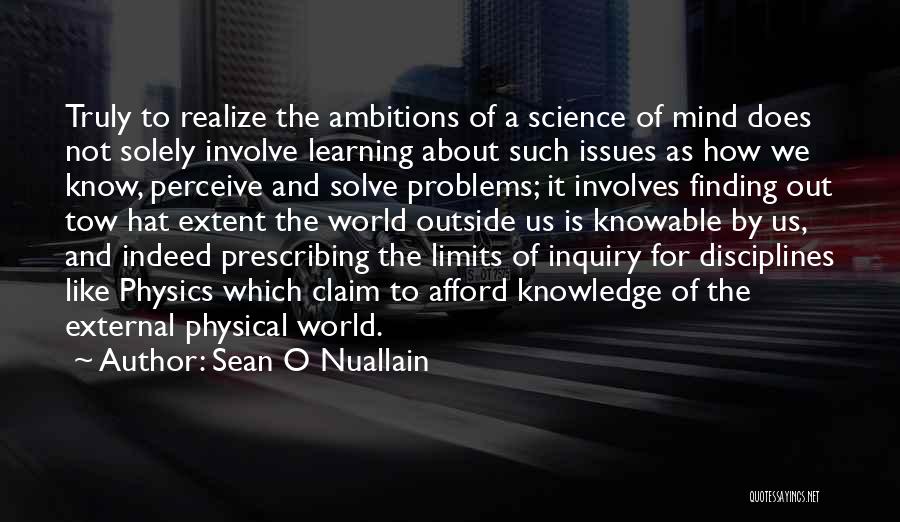
Truly to realize the ambitions of a science of mind does not solely involve learning about such issues as how we know, perceive and solve problems; it involves finding out tow hat extent the world outside us is knowable by us, and indeed prescribing the limits of inquiry for disciplines like Physics which claim to afford knowledge of the external physical world. — Sean O Nuallain
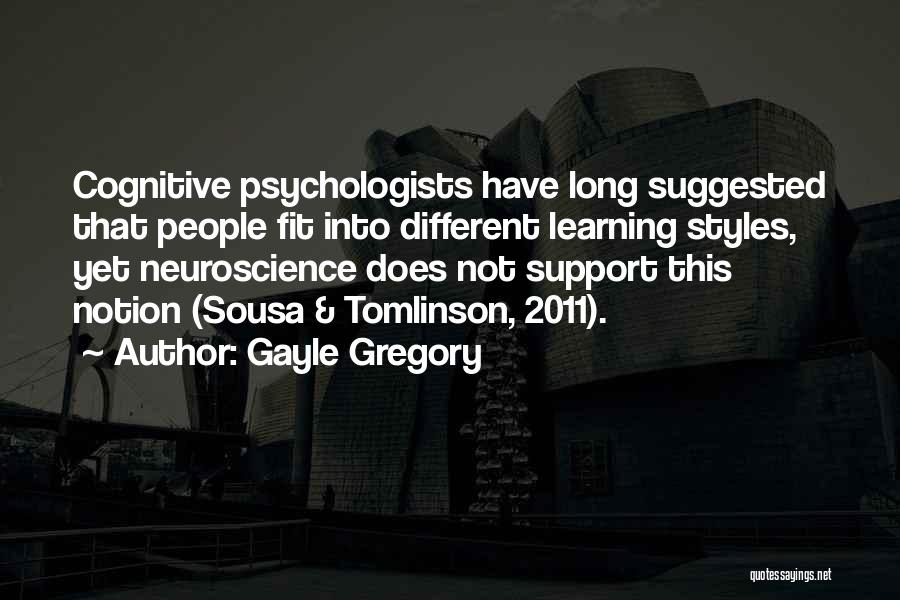
Cognitive psychologists have long suggested that people fit into different learning styles, yet neuroscience does not support this notion (Sousa & Tomlinson, 2011). — Gayle Gregory

It's helpful to know that Eden drew his inspiration from a classic study led by the Harvard psychologist Robert Rosenthal, who teamed up with Lenore Jacobson, the principal of an elementary school in San Francisco. In eighteen different classrooms, students from kindergarten through fifth grade took a Harvard cognitive ability test. The test objectively measured students' verbal and reasoning skills, which are known to be critical to learning and problem solving. Rosenthal and Jacobson shared the test results with the teachers: approximately 20 percent of the students had shown the potential for intellectual blooming, or spurting. Although they might not look different today, their test results suggested that these bloomers would show "unusual intellectual gains" over the course of the school year. — Adam M. Grant
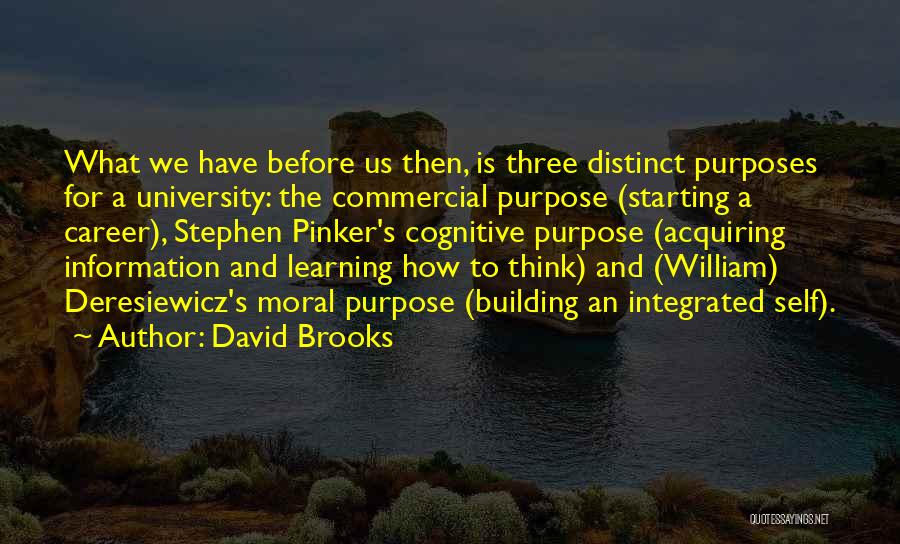
What we have before us then, is three distinct purposes for a university: the commercial purpose (starting a career), Stephen Pinker's cognitive purpose (acquiring information and learning how to think) and (William) Deresiewicz's moral purpose (building an integrated self). — David Brooks
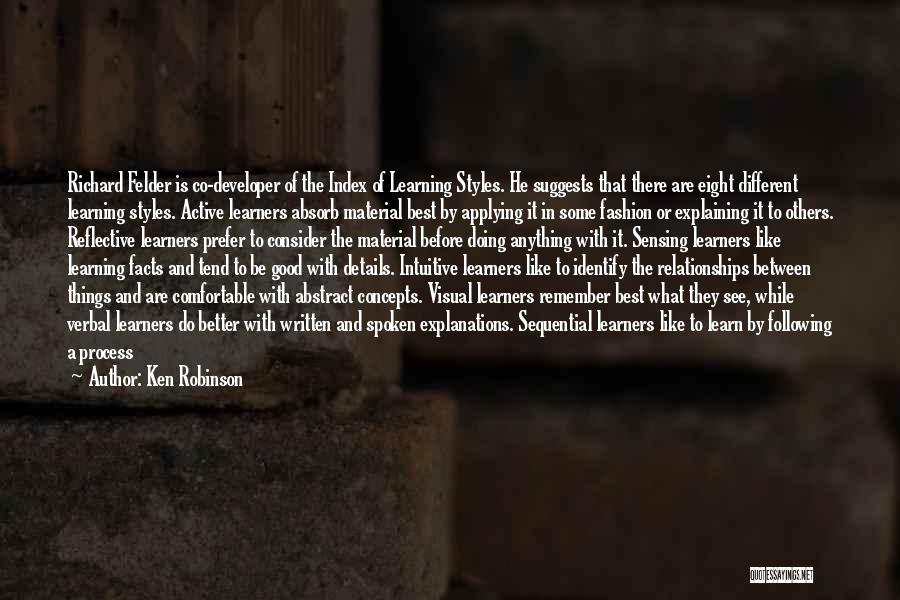
Richard Felder is co-developer of the Index of Learning Styles. He suggests that there are eight different learning styles. Active learners absorb material best by applying it in some fashion or explaining it to others. Reflective learners prefer to consider the material before doing anything with it. Sensing learners like learning facts and tend to be good with details. Intuitive learners like to identify the relationships between things and are comfortable with abstract concepts. Visual learners remember best what they see, while verbal learners do better with written and spoken explanations. Sequential learners like to learn by following a process from one logical step to the next, while global learners tend to make cognitive leaps, continuously taking in information until they get it. — Ken Robinson





